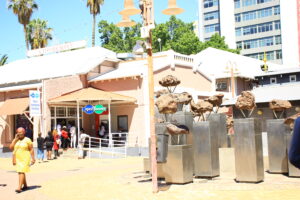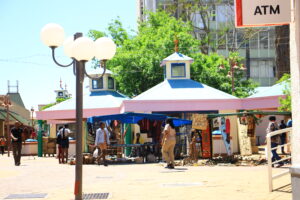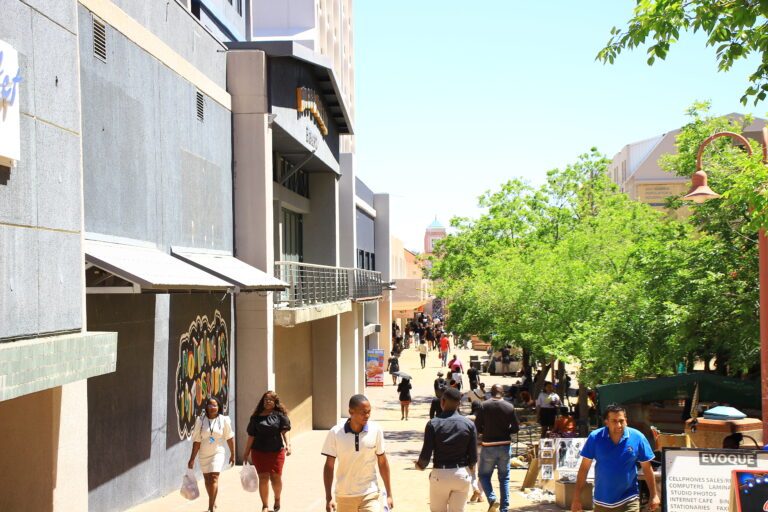At the dawn of independence in 1990, a public servant working in an entry-level position for the state could afford to buy themselves a home, a car, and send his children to school with a lunchbox for break-time. However, the rising cost of living has ushered in a phenomenon referred to as the ‘working poor’ where relatively young people, even those working at supervisory level, cannot afford to buy themselves homes and end up renting apartments in complexes if they are lucky. Many young people, especially in the capital city of Windhoek, have delayed moving out of their parents’ homes because, for them, affording a dwelling of their own is a pipe dream. Houses in Namibia, which are usually financed through a mortgage loan from one of the country’s four commercial banks, are only accessible to the middle class and those with a household income of at least N$35000 (USD 2000) and above.
The average wage in Namibia, according to the Wage Indicator Foundation, is estimated at N$3240 (US$187) per month. Low wages, rising inflation, and high unemployment (which results in black families having the burden of taking care of other family members) are all factors that contribute to the phenomenon of the working poor.
The free-market policies that Namibia’s government assumed at independence can also be seen as a contributing factor to the phenomenon of Namibia’s working poor.
Free Market Fundamentalism
Free market Fundamentalism is a term applied to a strong belief in the ability of unregulated markets to solve most economic and social problems. But what happens in an economy with an oversupply of labor and no industry to absorb that labor?
Well, the principles of supply and demand suggest that labor will be cheap in such a scenario, and employers are spoiled for choice when deciding who to hire and at what cost.

In the absence of strong labor unions, the ability for workers to get at least a decent, living minimum wage is eroded!
The absence of a minimum wage for Namibia’s working force is one of the main contributors to the phenomenon of the working poor: people who are formally employed but can’t afford the basics in terms of food, clothing, and shelter, let alone school fees for their offspring, transport, water, and electricity bills.
How Did China Do It?
Following the disastrous Cultural Revolution in China, communist party leader Deng Xiaoping and the Chinese government initiated an open-door strategy aimed at achieving economic growth by actively embracing foreign capital and technology, while simultaneously upholding its socialist principles.
On the other hand, Namibia, at the dawn of independence, adopted a free market economy that they labeled ‘mixed’ and allowed capitalism to reign without proper regulation or oversight by the state.
Deng successfully enhanced the economic well-being of the Chinese populace through the implementation of a political framework characterized by a one-party socialist democracy, with the adoption of a market-oriented economic system.
This meant that there was an improvement in the economic status of Chinese people, which translated into a higher quality of life.
Namibian-based economist Robin Sherbourne states that “in spite of moderate real Gross Domestic Product (GDP) growth rate averaging 4.3 percent and translating into real GDP per capita growth of about 2.3 per year since 1990, this has not sufficiently translated into substantial reduction in poverty, income inequality, and unemployment”.
This was ten years ago, in 2013, and the status quo prevails.
Why has Namibia managed to have year-on-year economic growth that has not translated into employment opportunities, and in instances where those employment opportunities do not translate into a higher living standard for its working class?

The answer lies in the extractive industries, which are the mainstay of the economy. On the back of a huge mining sector, Namibia exports raw materials to other countries that manufacture them into finished goods.
Uranium, gold, copper, and diamonds are just some of the natural resources that Namibia is endowed with.
The country also has a huge fishing industry that exports jobs to countries such as Spain and Italy.
The lack of labor legislation and strong trade unions also compounds the tragedy of the working poor because there is no basic (minimum) (living) wage, and workers, especially those who are new entrants into the workforce, take the first offer that is put on the table, which is usually not market-related.
Employers take advantage of the plight of those who are desperate for employment and compensate them a pittance for the output and services they provide.
Inequality and wage disparities are man-made, and there is a need for an ethical dialogue on how to protect the most vulnerable of citizens so that they are protected from an unjust capitalist labor system.
















